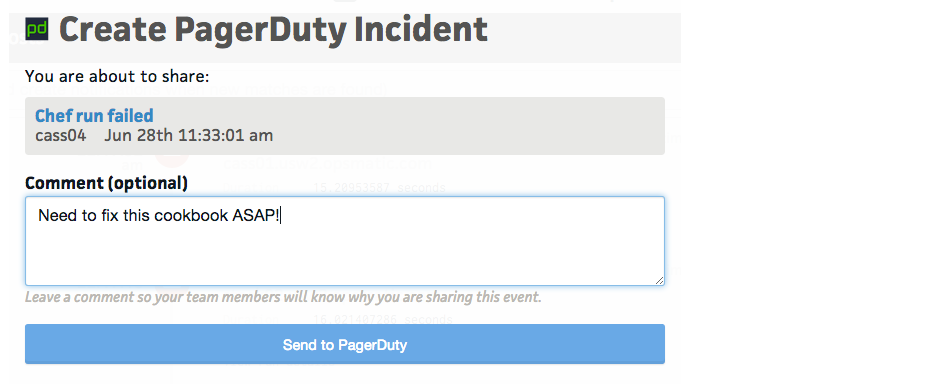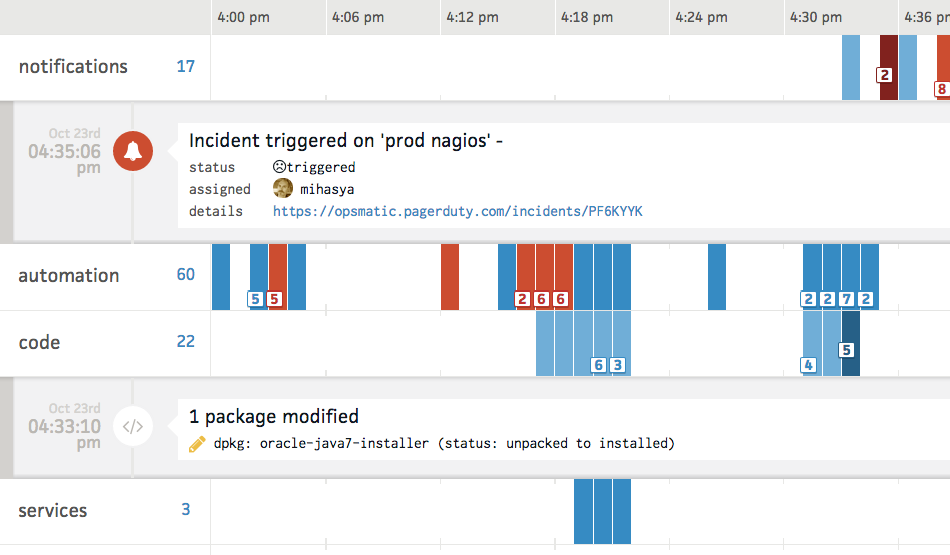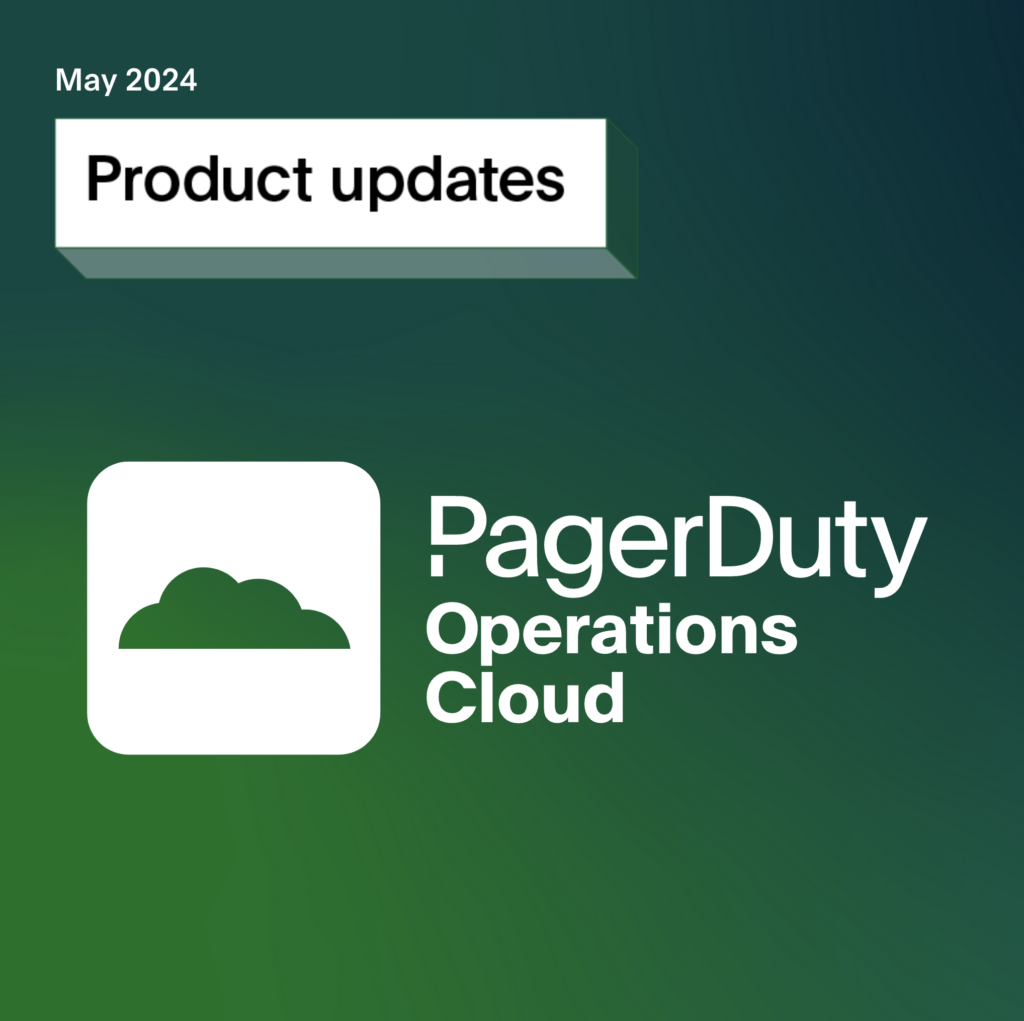- PagerDuty /
- Blog /
- Announcements /
- PagerDuty + Opsmatic = Faster incident resolution
Blog
PagerDuty + Opsmatic = Faster incident resolution

This post originally appeared on Opsmatic’s blog.
Opsmatic provides real-time visibility of any change to the live state of your infrastructure and intelligently alerts you before trouble begins. The recent addition of Assertions gives you a precise way to check and enforce policy across all your hosts.
It’s only natural that Opsmatic has partnered with PagerDuty to ensure flawless alerting and effective incident collaboration. PagerDuty’s operations performance platform ensures that the right people on your team get alerted and can resolve incidents before they become emergencies.
Incidents are automatically created in PagerDuty when Opsmatic policy checks fail, such as a loss of a certain percentage of a cluster or an inconsistent change to a package version.

Systems changes, such as a failed automation run or a user logging onto a specific host can also trigger an incident. You can define saved searches for change events and scope them by host group to tailor your alerting.
 You can also manually create a PagerDuty incident from any change event in Opsmatic that you know is going to cause trouble.
You can also manually create a PagerDuty incident from any change event in Opsmatic that you know is going to cause trouble.

In addition to using PagerDuty as an incident management platform, you can also push your notification, acknowledgement, and resolution alerts into Opsmatic to allow you to quickly correlate changes tracked in Opsmatic with alerting.

This two-way integration means faster time to resolution and more integrated visibility and alerting of the changes occurring in your infrastructure.
PagerDuty has an integration guide to get you started, and we also provide documentation which includes a tool to add Opsmatic webhooks to all your services in PagerDuty.
If you’re not already using Opsmatic you can sign up here.



